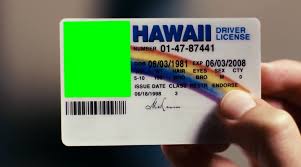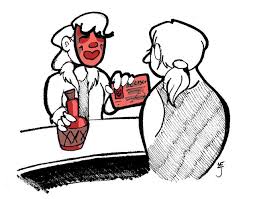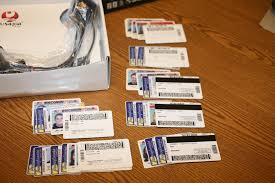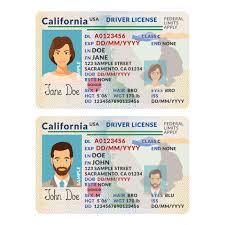British Columbia fake ID card
Outline
- Introduction
- What is a Fake ID?
- The Prevalence of Fake IDs in British Columbia
- Understanding the Appeal of Fake IDs
- Why Do People Use Fake IDs?
- The Age Factor
- Access to Restricted Services
- The Risks of Using a Fake ID
- Legal Consequences
- Impact on Personal Records
- Social Consequences
- How Fake IDs Are Made
- The Technology Behind Fake IDs
- Common Methods Used by Counterfeiters
- Identifying a Fake ID
- British Columbia’s Response to Fake IDs
- Law Enforcement Measures
- Penalties for Possession and Use
- Preventative Strategies
- The Role of Businesses in Combatting Fake IDs
- How Bars and Clubs Handle Fake IDs
- Retailers and Fake ID Detection
- Training Programs for Staff
- The Ethical Implications of Using a Fake ID
- The Morality of Deception
- The Long-Term Impact on Society
- How to Spot a Fake ID
- Key Indicators of a Fake ID
- Tools and Technologies Used in Detection
- What to Do if You Encounter a Fake ID
- Real-Life Consequences of Using a Fake ID in British Columbia
- Case Studies
- Testimonies from Offenders
- Impact on Future Opportunities
Alternatives to Using a Fake ID
- Waiting It Out: The Benefits of Patience
- Legal Ways to Enjoy Youthful Activities
- Resources for Young Adults
How Parents Can Address the Issue
- Signs Your Child Might Be Using a Fake ID
- How to Have a Conversation About It
- Resources for Concerned Parents
The Future of Fake IDs in British Columbia
- Advancements in ID Technology
- Potential Changes in the Law
- The Ongoing Battle Against Counterfeiting
The Social Perception of Fake IDs
- How Society Views Fake IDs
- The Influence of Media and Culture
- Shifting Attitudes Over Time
Conclusion
- Summary of Key Points
- The Importance of Understanding the Risks
- Encouragement for Responsible Behavior
FAQs
- Are fake IDs illegal in British Columbia?
- What are the penalties for using a fake ID?
- How do businesses verify the authenticity of an ID?
- What should I do if I’m caught with a fake ID?
- Can a fake ID affect my future?
British Columbia Fake ID Card
Introduction
When we talk about fake IDs, we're diving into a world that blends youth rebellion, risky decisions, and serious legal consequences. In British Columbia, the use of fake ID cards isn't just a mischievous act; it's a gateway to potential trouble. But why do people take this risk? What's so appealing about having a fake ID, and what are the dangers lurking behind that phony piece of plastic? Let's break it down.
Understanding the Appeal of Fake IDs
Why Do People Use Fake IDs?
Fake IDs aren't a new phenomenon. For decades, young people have sought ways to bypass age restrictions, whether it’s to buy alcohol, enter clubs, or access other age-limited services. The thrill of getting away with something forbidden is often too tempting to resist.
The Age Factor
The most common reason young people seek out fake IDs is simple: they’re underage. The legal drinking age in British Columbia is 19, but many teens start socializing in environments where alcohol is present long before they reach this age. The desire to fit in with older peers can drive the demand for fake IDs.
Access to Restricted Services
Beyond alcohol, fake IDs are often used to access other restricted services like gambling, renting vehicles, or attending certain events. For some, it’s not just about the alcohol—it's about opening doors that are legally closed.
The Risks of Using a Fake ID
Legal Consequences
Using a fake ID in British Columbia isn’t just a minor infraction; it's a criminal offense. If caught, the consequences can be severe, including hefty fines, a criminal record, and even jail time in some cases. The law doesn’t take this lightly because it involves deliberate deception.
Impact on Personal Records
A criminal record can follow you for life, affecting everything from job opportunities to travel plans. Employers, especially in fields requiring background checks, may view a fake ID conviction as a serious red flag. It’s a stain that’s tough to erase.
Social Consequences
Aside from the legal trouble, there’s the social fallout to consider. Being caught with a fake ID can lead to embarrassment, strained relationships, and a tarnished reputation. Imagine the awkwardness of being escorted out of a club in front of your friends, or worse, your family finding out.
How Fake IDs Are Made
The Technology Behind Fake IDs
The production of fake IDs has evolved with technology. In the past, fake IDs were often crude and easy to spot. Today, they can be almost indistinguishable from the real thing, thanks to high-quality printers, scanners, and software.
Common Methods Used by Counterfeiters
Counterfeiters use various methods to create fake IDs, including altering real IDs, creating entirely new ones from scratch, or using stolen information. Some even go as far as hacking into government databases to produce IDs that pass through most basic checks.
Identifying a Fake ID
Despite advances in technology, there are still telltale signs that an ID is fake. These might include incorrect fonts, uneven spacing, mismatched photos, or a lack of security features like holograms or UV markings. Training and vigilance are key to spotting these inconsistencies.
British Columbia’s Response to Fake IDs
Law Enforcement Measures
Law enforcement in British Columbia is increasingly cracking down on the use of fake IDs. Regular sting operations and undercover efforts are used to catch both users and producers of fake IDs. The penalties can be severe, reflecting the seriousness of the crime.
Penalties for Possession and Use
The penalties for using a fake ID in British Columbia can include fines up to $200,000, imprisonment for up to five years, or both, depending on the severity of the offense. In addition, the fake ID will be confiscated, and the offender's real ID could be suspended.
Preventative Strategies
To combat the spread of fake IDs, the government has implemented several preventative strategies, including public awareness campaigns and partnerships with businesses. By educating the public about the risks and consequences, they hope to reduce the demand for fake IDs.
The Role of Businesses in Combatting Fake IDs
How Bars and Clubs Handle Fake IDs
Bars and clubs are on the front lines of the fake ID battle. Staff are trained to spot fakes and often use advanced tools to verify the authenticity of IDs. Some establishments even employ bouncers with law enforcement backgrounds specifically for this purpose.
Retailers and Fake ID Detection
Retailers selling age-restricted products like alcohol and tobacco also play a crucial role. Many have implemented strict ID verification processes, including the use of scanning technology that checks IDs against a database to ensure they’re legitimate.
Training Programs for Staff
To stay ahead of increasingly sophisticated fake IDs, businesses are investing in comprehensive training programs for their staff. These programs teach employees what to look for and how to handle situations where a fake ID is suspected.
The Ethical Implications of Using a Fake ID
The Morality of Deception
At its core, using a fake ID is an act of deception. It involves lying about your age, which can lead to a host of other dishonest behaviors. This raises ethical questions about the lengths people are willing to go to achieve their desires.
The Long-Term Impact on Society
The widespread use of fake IDs can have a ripple effect on society. It undermines the rule of law, encourages illegal behavior, and can lead to more serious crimes. Over time, this erosion of trust can harm communities and weaken social bonds.
How to Spot a Fake ID
Key Indicators of a Fake ID
When it comes to spotting a fake ID, certain red flags should raise immediate suspicion. These include:
- Poor quality or pixelated images.
- Misspellings or inconsistent information.
- Unusual thickness or texture of the card.
- Lack of holograms, watermarks, or other security features.
Tools and Technologies Used in Detection
In addition to a keen eye, there are several tools available to help detect fake IDs. UV lights can reveal hidden security features, while ID scanners can check the barcode and magnetic stripe for inconsistencies. Some businesses even use mobile apps designed to spot fakes.
What to Do if You Encounter a Fake ID
If you suspect someone is using a fake ID, it’s important to handle the situation calmly. Do not confront the person directly. Instead, confiscate the ID if possible and report the incident to the authorities or management immediately.
Real-Life Consequences of Using a Fake ID in British Columbia
Case Studies
There have been numerous cases in British Columbia where individuals have faced significant consequences for using fake IDs. These cases often serve as cautionary tales, highlighting the potential for a promising future to be derailed by a single poor decision.
Testimonies from Offenders
Many who have been caught using fake IDs express regret, often realizing too late the full impact of their actions. Some share their stories to warn others, hoping to prevent them from making the same mistakes.
Impact on Future Opportunities
The impact of being caught with a fake ID can extend far beyond the immediate legal consequences. It can affect future opportunities, such as university admissions, job prospects, and even international travel, as many countries require a clean record for visa approvals.
Alternatives to Using a Fake ID
Waiting It Out: The Benefits of Patience
While it might seem frustrating to wait until you're of legal age, there are benefits to doing so. By waiting, you avoid the risks and potential long-term consequences associated with using a fake ID. Plus, the anticipation makes the experience more rewarding when you finally do reach the legal age.
Legal Ways to Enjoy Youthful Activities
There are plenty of ways to enjoy your youth without resorting to a fake ID. Many venues and events cater to younger audiences, offering a fun and safe environment for socializing. Exploring these options can lead to new experiences and friendships without breaking the law.
Resources for Young Adults
If you’re feeling pressured to use a fake ID, there are resources available to help. Whether it’s talking to a trusted adult, seeking guidance from a counselor, or finding support groups, it’s important to remember that you’re not alone.
How Parents Can Address the Issue
Signs Your Child Might Be Using a Fake ID
Parents should be aware of the signs that their child might be using a fake ID. These can include sudden changes in behavior, secretive actions, or an unexplained interest in places they’re too young to visit.
How to Have a Conversation About It
If you suspect your child is using a fake ID, it’s crucial to approach the conversation calmly and non-judgmentally. Focus on the risks and consequences rather than punishing them. Open dialogue can lead to better understanding and prevent future issues.
Resources for Concerned Parents
Parents worried about their children using fake IDs can access numerous resources, including online forums, counseling services, and educational materials. These resources offer advice on how to address the issue and support their child through this challenging time.
The Future of Fake IDs in British Columbia
Advancements in ID Technology
As technology advances, so does the ability to produce convincing fake IDs. However, the same technology is also being used to improve ID verification methods, making it harder for fake IDs to go undetected. British Columbia is continually updating its strategies to stay ahead of counterfeiters.
Potential Changes in the Law
There’s ongoing discussion about tightening laws around fake IDs in British Columbia. This could include harsher penalties, more stringent ID verification requirements, and increased collaboration between law enforcement and businesses.
The Ongoing Battle Against Counterfeiting
The fight against fake IDs is far from over. It’s an ongoing battle that requires vigilance, cooperation, and innovation. By staying informed and proactive, British Columbia aims to reduce the prevalence of fake IDs and protect its citizens.
The Social Perception of Fake IDs
How Society Views Fake IDs
Society's view of fake IDs has shifted over the years. Once seen as a harmless rite of passage, they are now recognized for the serious legal and ethical issues they present. Public opinion is increasingly in favor of cracking down on their use.
The Influence of Media and Culture
Media and culture play a significant role in shaping attitudes toward fake IDs. Movies and TV shows often glamorize their use, downplaying the consequences. It’s important to critically evaluate these portrayals and understand the real risks involved.
Shifting Attitudes Over Time
As awareness of the dangers associated with fake IDs grows, attitudes are slowly changing. More people are recognizing the importance of following the law and understanding the long-term impact that using a fake ID can have on one’s life.
Conclusion
The allure of using a fake ID in British Columbia might seem enticing, but the risks far outweigh any temporary benefits. From legal trouble to social consequences, the potential fallout is significant. Understanding the dangers and making responsible choices is crucial. After all, waiting a few more years to enjoy certain privileges is a small price to pay for avoiding a lifetime of regret.
FAQs
Q1: Are fake IDs illegal in British Columbia?
Yes, using or possessing a fake ID in British Columbia ID is illegal and can result in severe penalties, including fines and imprisonment.
Q2: What are the penalties for using a fake ID?
Penalties can range from fines to imprisonment and may also include a criminal record, which can impact your future opportunities.
Q3: How do businesses verify the authenticity of an ID?
Businesses use various methods to verify IDs, including visual inspections, scanning technology, and UV light to check for security features.
Q4: What should I do if I’m caught with a fake ID?
If caught, it’s important to cooperate with authorities. Seek legal advice to understand your rights and potential consequences.
Q5: Can a fake ID affect my future?
Yes, having a criminal record from using a fake ID can impact your future, including job prospects, travel opportunities, and educational pursuits.
 Canada-Quebec DLFake ID
Canada-Quebec DLFake ID
 EmploymentAuthorization CardFa
EmploymentAuthorization CardFa
 Canada-British Columbia DLFake
Canada-British Columbia DLFake
 CalifomiaFake ID
CalifomiaFake ID